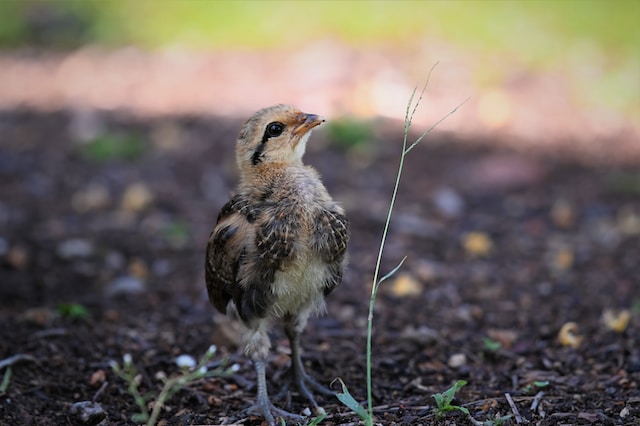If you’re interested in keeping quail as pets or for their eggs and meat, it’s important to know how to care for them from the moment you bring them home. Raising young quail, or “quail chicks,” requires a little extra attention and care compared to adult quail.

To start your quail flock, check out local breeders or search online for “quail chicks for sale” to find your newest additions. This article will discuss the steps to ensure your new feathered friends are healthy, happy, and thriving in their new homes.
Bringing Your Quail Chicks Home
Once you have everything set up for your new quail chicks, it’s time to bring them home. Here are some tips for a smooth transition:
Transport: If you’re picking up your quail chicks in person, ensure you have a secure container to transport them in. A cardboard box with ventilation holes works well.
Introducing to New Home: When you arrive home, place the chicks in their new home and give them time to settle in. Keep the heat lamp on and ensure they can access food and water.
Providing Proper Nutrition
Quail chicks need a balanced diet to grow and develop properly. Here are some points to remember when it comes to feeding your chicks:
Feed Type: Many different types of feed are available for quail chicks. Look for a starter feed high in protein and formulated specifically for quail.
Water: Ensure your chicks always have access to clean, fresh water. Quail chicks can be prone to dehydration, so it’s important to always keep their water full.
Supplements: Some quail keepers supplement their chicks’ diets with vitamins and minerals. Talk to your veterinarian or a poultry specialist to determine what supplements are right for your chicks.
Monitoring Your Quail Chicks’ Health
As with any pet or livestock, keeping an eye on your quail chicks’ health is important. Here are some things to watch for:
Behavior: Healthy quail chicks are active and curious. It could indicate illness if your chicks seem lethargic or uninterested in food and water.
Physical Symptoms: Look for symptoms like diarrhea, sneezing, or eye or nose discharge. If you notice any of these symptoms, contact your veterinarian right away.
Parasites: Quail chicks can be susceptible to parasites like lice and mites. Check your chicks regularly for signs of infestation and treat them promptly if necessary.
As Your Quail Chicks Grow
As your quail chicks grow and develop, you must change their living space and diet. Here are some things to remember:
Moving to Coop: Once your quail chicks are fully feathered, they can be moved to a larger coop with more space. Make sure the coop is secure and has plenty of ventilation.
Feeding Changes: As your chicks grow, you must adjust their diet. Gradually introduce them to adult quail feed and provide access to grit for proper digestion.
Socialization: Quail are social creatures and enjoy the company of other quail. Consider getting more quail chicks or introducing them to adult quail as they grow.
Enjoying Your Quail
Raising quail can be fun and rewarding. Here are what you can do to bond with your quail:
Spend Time with Them: Quail are curious creatures and enjoy exploring their surroundings. Spend time, observe and interact with them.
Training: Quail can be trained to come when called or even do simple tricks. Consider training them for a fun bonding activity.
Egg Collecting: If you’re raising quail for eggs, collect them regularly and enjoy the delicious, nutritious eggs your quail provide.
Conclusion
Raising young quail requires careful attention and care, but the rewards are well worth it. If you’re already an experienced quail keeper, consider selling some of your quail chicks for sale to others who are just starting. By providing safe and comfortable living space, proper nutrition, and monitoring your quail’s health, you can enjoy the company of your feathered friends for years to come.